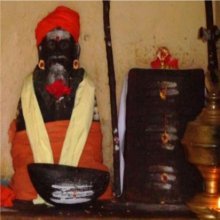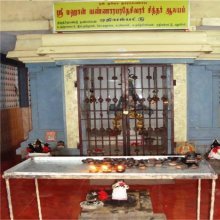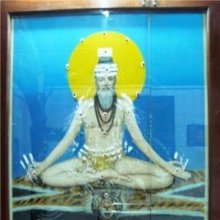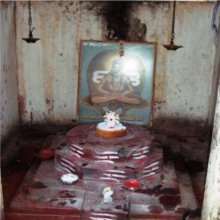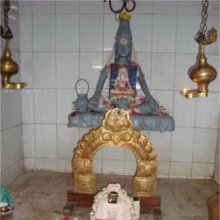Puducherry: 1 definition
Introduction:
Puducherry means something in Hinduism, Sanskrit, the history of ancient India. If you want to know the exact meaning, history, etymology or English translation of this term then check out the descriptions on this page. Add your comment or reference to a book if you want to contribute to this summary article.
Images (photo gallery)
(+20 more images available)
In Hinduism
Shaivism (Shaiva philosophy)
Source: DSpace at Pondicherry: Siddha Cult in Tamilnadu (shaivism)Inscriptions of Puducherry.—The inscriptions found in Puducherry region also give some information about the existence of the Siddha cult in Puducherry region during the medieval period. Few of the inscriptions found in the Varadarāja Perumal temple of Tirubuvaṉai in Puducherry, contain terms like ‘Māheśvara’.
Apart from the temple inscriptions, some of mathas in Villianūr region of Puducherry also contain a couple of inscriptions which are related to the existence of the Siddha cult in this region. Three inscriptions are identified, of which two are found in the Villianūr Kalvi matha and one in the Samādhi of Rāma Paradesi at Villianūr. They belong to 18th Century.

Shaiva (शैव, śaiva) or Shaivism (śaivism) represents a tradition of Hinduism worshiping Shiva as the supreme being. Closely related to Shaktism, Shaiva literature includes a range of scriptures, including Tantras, while the root of this tradition may be traced back to the ancient Vedas.
India history and geography
Source: Shodhganga: Siddha Cult in TamilnaduPuducherry refers to one of the various famous Siddha Centre distributed throughout South India and Tamil Nadu. The Siddha cult represents a Tantric philosophy that emerged from the combination of several elements found in traditions such as Shaivism (viz., Pashupata), Shaktism, Jainism, Tantric Buddhism (Vajrayana), etc. Both the Siddha and the Navanath cult (i.e., Nava-natha, ‘nine saints’) are popular in South India [viz., Puducherry] and Tamilnadu. A Siddha was an inspired seer belonging to the marginalized sections of society who dissolved their past karma and crushed the roots of future karma.

The history of India traces the identification of countries, villages, towns and other regions of India, as well as mythology, zoology, royal dynasties, rulers, tribes, local festivities and traditions and regional languages. Ancient India enjoyed religious freedom and encourages the path of Dharma, a concept common to Buddhism, Hinduism, and Jainism.
See also (Relevant definitions)
Full-text: Tirukameshvara, Thennampakkam, Poduca, Poduke, Cakra.
Relevant text
Search found 2 books and stories containing Puducherry; (plurals include: Puducherries). You can also click to the full overview containing English textual excerpts. Below are direct links for the most relevant articles:
Temples of Munnur (Historical Study) (by R. Muthuraman)
Sangam period < [Chapter 1]
Middle Chola Temples (by S. R. Balasubrahmanyam)
Temples in Marakkanam < [Chapter II - Temples of Rajaraja I’s Time]
